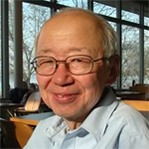All lectures are presented fully online via Zoom every Friday at 3:30 PM. The link to join the meeting is https://uwmadison.zoom.us/j/99623736476
except when otherwise indicated. Brown bag sessions start at noon on
the days there are speakers. Alumni, friends and the public are always
invited to attend.
Fall 2006 Lectures
September 15 - Global change, local places: models of individual decision making on the new Mexican frontier
Dr. Steve Manson
Abstract: Humans have long altered the land by clearing forests,
farming, and building settlements. The extent of these activities in
many places has become environmentally and socially unsustainable. Yet,
we know surprisingly little about the nature, causes, and impacts of our
changing landscapes. I combine empirical research with computer
modeling to advance theory and develop practical knowledge on how this
land change is caused by interactions among individuals, organizations,
and broader social and environmental systems. I use this approach to
conduct comparative research on deforestation in the Southern Yucatan of
Mexico.
Biographical sketch:
http://www.tc.umn.edu/~manson/research.htm
Steven Manson is an assistant professor and McKnight Land-Grant
Professor of Geography at the University of Minnesota. He received his
PhD from Clark University in 2002. He combines environmental research,
social science approaches, and geographic information science to
understand changing urban and rural landscapes in the United States and
Mexico. This work is part of his longer term research on global
environmental change, decision making, and understanding complex
human-environment systems. Among other things, Dr. Manson was a NASA
Earth System Science Fellow, received the Young Scholar Award from the
University Consortium for Geographic Information Science, and is a NASA
New Investigator in Earth-Sun System Science. Dr. Manson teaches in the
areas of geographic information science and spatial analysis of
human-environment systems. He is also co-director of UMN's Masters of
Geographic Information Science program.
September
29 - Landscape Evolution and the Earliest Modern Humans on the Russian
Plains: Geoarchaeology of the Kostenki Localities
Dr. Vance Holliday
Departments of Anthropology and Geosciences, University of Arizona
October 20 - And the Moral of the Story Is.': Fables of Climate Change
Dr. Bill Cronon
UW-Madison
October 27 - Challenged by diversity: Biogeography and conservation of tropical landscapes
Dr. Ken Young
Univ of Texas
November 3 - Natural Articulations? Inherited and Entrepreneurial Ecologies in the Neoliberal City
Dr. Alec Brownlow
DePaul University
November 10 - 1400 Years of Forest Alteration in Madagascar by Homo sapiens
Compton Tucker
NASA Goddard Space Flight Center
November 17 - Ice age hotspots? Conservation lessons from the last glacial maximum
Dr. Jason McLachlan
Notre Dame
December 1 - Pacific Northwest Fires, Volcanoes, and Forests: Evidence from the past informing the future
Dr. Colin Long
UW-Oshkosh








